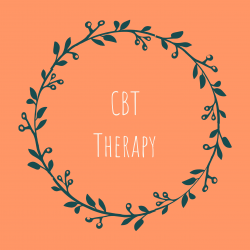Written by: Maggie Chapman (Psychlogical Therapist)
To celebrate Mental Health Awareness Week 2019 (13th – 19th May) we are looking at the 'Basic Principles of Cognitive Behavioural Therapy (CBT)'
There are some specific principles central to CBT. Many may be shared by other approaches but the combination of these principles goes some way towards understanding CBT.
Principles of Emotional Responsibility in CBT/REBT
‘Nothing is good or bad unless we think it so’ Hamlet
The core of any therapy describing itself as ‘cognitive’ is that people’s emotional reactions and behaviours are strongly influenced by ‘cognitions’; in other words, their beliefs and inferences.
If you asked someone what ‘makes’ you anxious, sad, angry and so on, most will give you an account of an event or situation. For example, talking in front of people makes me anxious, unfairness makes me angry, exams makes me nervous and so on. Think of a past event that ‘made’ you feel a negative emotion like anger or depression. If it was true that this past event was the cause of your feelings then the only way you can change your feelings now is for the event not to have happened. If someone made you feel and behave in a certain manner, then the only way you can change your feelings now is to get that person to undo what they did. What if that person is now deceased?
Therefore, there has to be something else that is at the heart of our emotional responses. In CBT this ‘something’ is the cognition. Your belief, the meaning you give to an event, what you tell yourself about it.
For example:
- If you think that your partner’s late arrival for dinner proves that he doesn’t care then you might feel hurt and depressed.
- If you think that your partner late arrival for dinner was due to the fact that he puts his work first and gets his priorities wrong then you might feel angry. If you think that your partner’s late arrival for dinner is no big deal then you may feel calm and relaxed about it.
- It is the same event (the partner’s late arrival for dinner), with different appraisals of the event and different emotional responses.
- This principle can be split into two; The General Principle of Emotional Responsibility and the Specific Principle of Emotional Responsibility.
The General Principle of Emotional Responsibility
‘We are largely, but not exclusively, responsible for the way we feel and act by the views we take of the events in our lives’. Windy Dryden.
This principle is at the heart of most psychotherapeutic models. It basically states that human beings are largely responsible for their emotions and behaviours. Without the acknowledgement of this principle, at some point during therapy, it becomes very difficult to work towards change.
The Specific Principle of Emotional Responsibility
This specifies precisely the kind of cognitions that are at the core of psychological disturbance i.e. it specifies unhealthy beliefs like “I am worthless”. It’s not any cognition or thought that provokes feelings but these specific ones.
This principle explains that specific critical beliefs, not just general thoughts, are at the heart of our emotions.
The principle of emotional responsibility is not only true but is also enormously empowering. It clearly shows that we can change how we feel and act, if we want to. It shows that change is possible in the here and now.
The Behavioural Principle
CBT considers behaviour (what we do) as significant in maintaining or in changing psychological states. If, for example, you avoid some event such as giving a presentation to your team, then you will deny yourself the opportunity to disconfirm your negative or unhelpful thoughts. Changing what you do is often a powerful way of helping you change thoughts and emotions.
The ‘Here and Now’ Principle
Traditional psychodynamic therapies take the view that looking at problems in the here and now is superficial. They consider successful treatment must uncover the developmental processes, hidden motivations and unconscious conflicts that are supposed to lie at the root of the problem. Psychodynamic approaches argue that treating the presenting problem rather than the supposed ‘root’ causes would result in symptom substitution i.e. the presenting problem would re-surface in another form. Behavioural therapy showed that such an outcome, although possible, was very rare.
CBT adopts the behavioural perspective. CBT offers theories about maintenance as opposed to the acquisition of unhealthy beliefs and dysfunctional coping strategies.
The Principle of Psychological Interactionism
This principle states that the events we choose to focus on, our interpretations and inferences of those events, beliefs we hold, emotions, thoughts, behaviours and physical symptoms we experience, are all interrelated and reciprocally influence one another in complex ways.
The Scientific Principle
CBT offers scientific theories that can and have been evaluated rigorously using evidence rather than just clinical anecdote. This is important for a couple of reasons:
- The treatment can be founded on sound and well-established theories.
- Ethically, we can have confidence in telling clients that it is validated by outcome research.
Book Reviews
ACT with Love by Russ Harris Publisher: Wiley The book is useful for improving couples’ lives together. It is aimed at couples whose relationship is ‘in reasonable shape’ or in ‘bad shape’, people who are not currently in a relationship but want to learn what went wrong in their previous ones, or for therapists looking for ideas how to work with relationship issues.
The Female Brain By Dr Louann Brizendine Publisher: Transworld Publishers This book is a fascinating read, it introduces some of the more recent research and ideas in neurophysiology. It is a helpful book for all those who want to understand the human brain whether you are male or female. Brizendine compares the differences between the male and female brain throughout the brains development and into old age. Each chapter discusses the impact of neurological growth and hormonal impact on the female developing brain at different ages.
Our Barnes Clinic
Our clinic is located in Barnes, South-West London and is easily accessible by public transport.
For more information including parking and other practicalities see our Barnes clinic page
Book an Appointment
Booking an appointment with one of our therapists is quick and easy. There is no long waiting time and you don’t need a referral from your GP.







